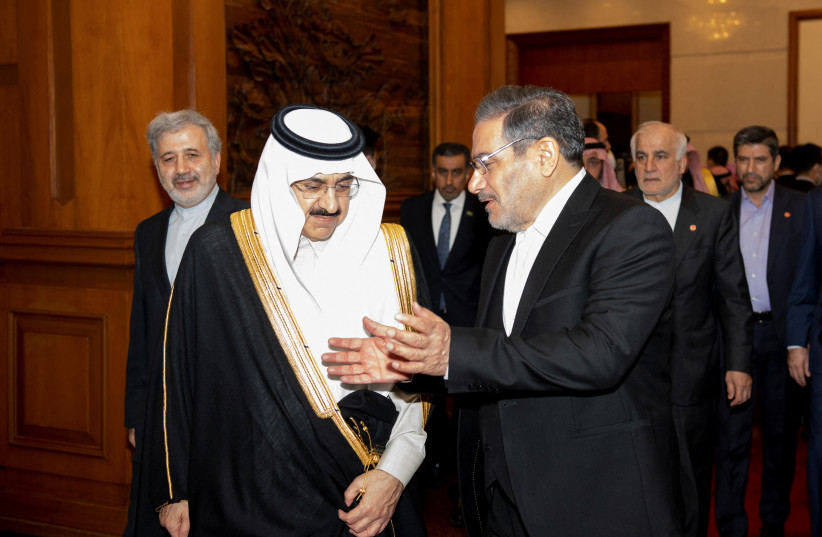Not long before Iran and Saudi Arabia announced a new era of relations during a meeting in China, the Iraqi former Prime Minister Mustafa al-Kadhimi gave an interview to London-based Asharq Al-Awsat. He discussed many issues relating to his experience as Prime Minister and also shed light on how he tried to position Iraq as a country that could host dialogue in the region. His interview also touched on the important role Iraq played in brokering the new Iran-Saudi ties.
This was an important period because Iraq was transitioning from the period of the war against ISIS and some of the crisis that followed, including US-Iran tensions, to trying to become a regional player again.
The Iraqi leader Kadhimi had to juggle pressure from Iran and the US, and he tried to articulate to Tehran and Washington he believed Iran needed to work with both countries. He also did outreach to the Gulf and Egypt.
Frank and fruitful dialogue
In his interview, he said that “the Saudi-Iranian dialogue was frank and fruitful, and that is why I expect a soon return to relations between the two countries and what is in their interest and the interest of the peoples of the region. There has been progress in the dialogue in Iraq.”

He said that the Iranians and Saudis met in Iraq for the “first time face to face and spoke frankly. The Iranians heard the Saudi point of view. And the Saudis heard the Iranian point of view. The dialogue was based on frankness and clarity. There was an admission of mistakes, including what happened to the Saudi embassy in Tehran.
"There was an agreement to build elements of trust between them in the first stage, then move to diplomatic dialogue and restore relations.”
The dialogue was held in a secret location, he said, and talks often went on daily for more than six hours. He was asked by the interviewer about specifics, such as whether Yemen was included in the talks. He refused to provide details, but said the talks were comprehensive. “I think it is very important that he continue. The success of the Saudi-Iranian dialogue helped calm the region. Saudi Arabia is a very important country in the region, and Iran is an important country in the region. They are two Muslim neighbors, and they have many common interests,” said Kadhimi.
Different countries have sought to portray the talks in varying lights. Iranian media have said that the Iran-Saudi rapprochement is a loss for Israel. In the Gulf it is being hailed as a breakthrough. The importance of Kadhimi’s insights is to look more deeply at the history of the talks, how complex it was and also the way in which it may improve regional stability.
Iraq’s role as a broker is also important and may show how Iraq can continue to work with both the Gulf, Iran, the US and other countries in the region to balance relations between different agendas in the Middle East. Clearly the continued US role in Iraq is part of this story, and the visit to Iraq by the US Secretary of Defense underpins the importance of the US mission there.
